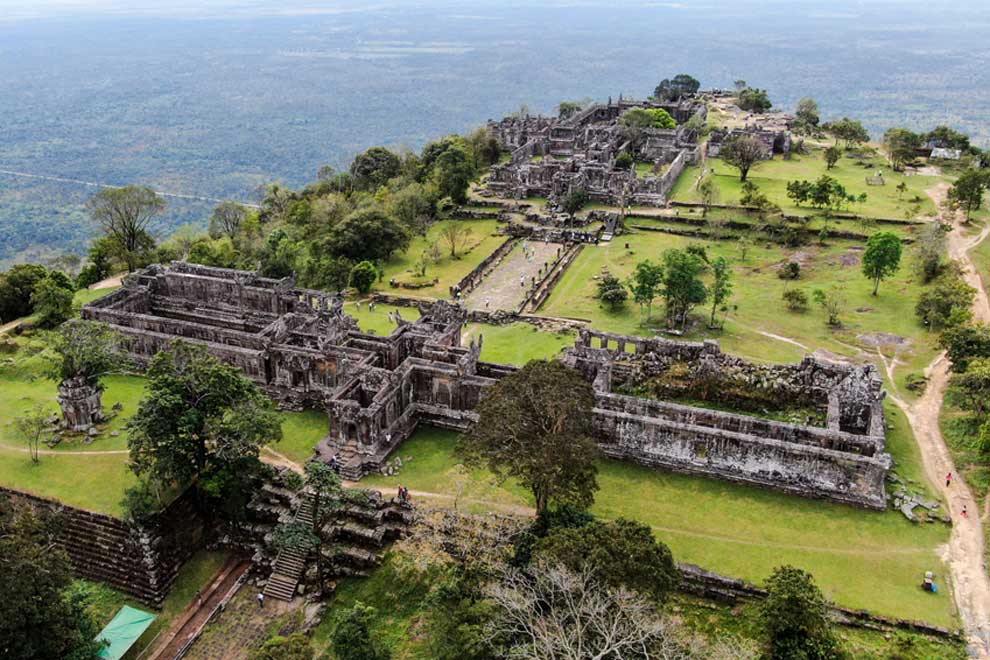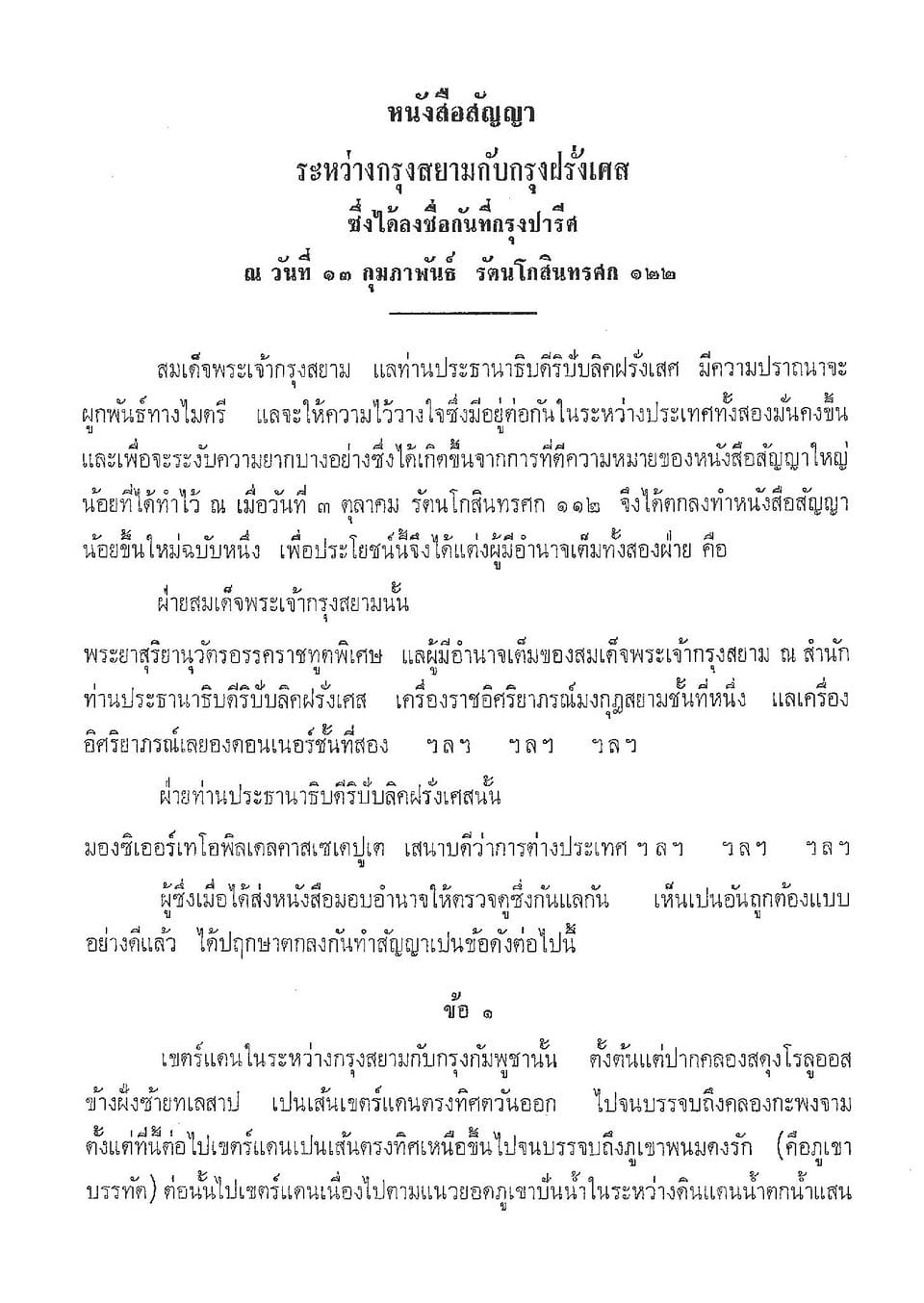Thailand vs Cambodia (Conflict Explained)
The TLDR for this conflict.

Oh boy, did I leave Thailand at the right time.
First an earthquake just weeks after leaving Bangkok (a fellow YouTuber, Isaiah Ashley who I meet a few times, lived in the same building on the 12th floor - I was on the 36th, thought he was going to die in a building collapse) to a full blown military conflict with neighboring Cambodia.
Since I've spent years of my adult life in Thailand let me breakdown what is happening from a high level overview.
Preah Vihear Temple and the French

The conflict centers on the ancient Hindu temple of Preah Vihear, perched dramatically on a clifftop at the edge of the Dangrek mountain range.
This area of both countries has some very under rated temples not frequented by foreign tourists.
The province of Buriram for example has their Phanom Rung temple which is a must see in my opinion.
I visit Phanom Rung in this vlog.
This contested border zone has been a source of recurring tension between Thailand and Cambodia, with origins stretching back more than a century to the era when European colonial powers carved up Southeast Asia.
While Burma, Malaysia, and India fell under British rule, and Cambodia, Laos, and Vietnam became part of French Indo-China, only Siam (modern-day Thailand) remained independent.
Surrounded by colonial powers, Thailand survived through diplomacy.
Ceding land, signing unequal treaties, and making painful concessions to preserve its sovereignty.
In short, Thailand was a useful barrier for both the French and English. This region of land they gave up to French Indo-China is in fact a natural mountain barrier.
Colonial legacy and legal battles
One of the most consequential agreements that lead to the conflict was the Franco-Siamese Treaty of 1904, which included the Preah Vihear temple area.
Thailand disputed this, arguing that the border should in fact follow the natural watershed of the Dangrek range, they also make the point that the only reason they gave up this territory was because of the French colonial power.

In 1954, after Cambodia gained independence from France, Thailand occupied the temple, asserting historical claims.
Cambodia responded by bringing the case to the International Court of Justice in 1959. Three years later, in 1962, the ICJ ruled in Cambodia's favor, awarding the temple itself, but not the surrounding hilltop (good job guys).
The court ruling wasn't based on the treaty's watershed clause. Instead, it was based on Thailand's failure to formally object to a French-drawn map for decades.
The court interpreted this as Thai acceptance of that map.
Thailand challenged the basis of this ruling but eventually withdrew, leaving the dispute unresolved to this day.
From obscurity to UNESCO controversy
Preah Vihear faded into obscurity. Thanks to civil war, landmines and chaos, the temple complex became difficult to visit and was forgotten about.
When peace returned in the 90s, Cambodia began promoting the temple as a cultural treasure. The situation again escalated in 2008 when Cambodia applied to have Preah Vihear listed as a UNESCO World Heritage site.
The problem?
Cambodia's application included surrounding land that Thailand still viewed as disputed.
Tensions between the two countries again escalated, and border flare-ups followed, including a week-long artillery exchange back in 2011. Dozens were killed, and Cambodia once again turned to the ICJ.
In 2013, the court reaffirmed Cambodia's claim, declaring that the temple and its surrounding vicinity belong to Cambodia.
Thailand disagreed, setting the stage for what is going on today.
The 2025 crisis unfolds
No one knows who fired first (Thais say Cambodia, Cambodia says Thailand) but by the time the shooting stopped, one Cambodian soldier was dead.
Thai Prime Minister Paetongtarn Shinawatra, who had only been in office for nine months, attempted to calm the situation by placing a call to Hun Sen, Cambodia's long-serving former leader.
The move backfired when Hun Sen leaked the call, first excerpts, then the full transcript.
In the leaked conversation, Shinawatra referred to Hun Sen as "uncle," offered cooperation, and criticized a Thai military commander as being too aggressive.
The leak caused outrage and protests erupted in Bangkok. Critics accused her of weakness, of undermining Thai sovereignty and the military.
Thailand's constitutional court then suspended her for possible ethical misconduct, throwing the government into chaos just as the border crisis deepened.
Political calculations and motives
So why leak the phone call instead of de-escalating things?
I have no idea, some say it may be because of Thailand's push to legalize gambling which could be a problem for Cambodia's established border casino economy.
Others say it could be because of pure nationalism as a way to bolster Hun Manet (the son of Han Sen) who is now serving as prime minister. Han Sen has ruled Cambodia since 1985, so it's becoming a bit of a dynasty.
Escalation and violence
Whatever the motives, the fallout has been severe.
Diplomatic ties collapsed, negotiations stalled and three Thai soldiers were maimed by a landmine near Chong Bok. Thailand accused Cambodia of planting landmines inside Thai territory and filed a protest with the United Nations.
Cambodia denied the allegation, claiming the mines were remnants from past conflicts.
Then a few days later, five more Thai soldiers were injured, and that night, Thailand sealed the border. The next morning, fighting began in earnest.
Each side gives a different version of events, but by nightfall, 11 Thai civilians were dead, including an eight-year-old boy.
Thailand alleges war crimes were committed when Cambodian artillery reportedly struck residential areas, including a gas station and a hospital.
Thailand responded with F-16 air strikes on Cambodian military positions, though casualties remain unconfirmed on the Cambodian side.
Military balance and stakes
Thailand has a larger military and is better equipment so if this escalates into a prolonged war, Cambodia faces steep odds.
However, the economic, political, and international costs for Thailand would also be enormous. Just like how nothing ever good comes from fighting, war provides no side with any meaningful benefit long term.
So the quicker this comes to an end, the better.
Going forward
Trust has been broken.
Thailand does not want to look weak making diplomacy more difficult, while in Cambodia their is a lot of nationalist sentiment stirred up.
Cambodia wants to go back to the International Court of Justice, but Thailand has had enough of this court and has claimed that this needs to be solved bilaterally once and for all.
Malaysia, a fellow ASEAN member, has proposed a ceasefire so I'll update this post as things develop and hopefully this boarder conflict comes to a peaceful end.



